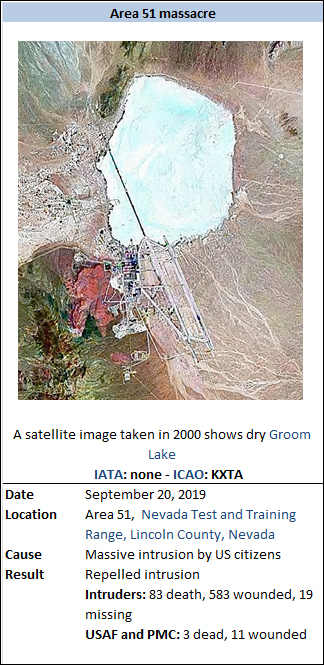BlackentheBorg
Banned
Well I used Rachel because it has the same syllables as Ringo. Ra-chel, Rin-go.Why Georgina not Georgia Harrison? and perhaps Rachel "Rae" Starr?
As for Georgia, 'fraid I had to follow the sacred texts there.
Well I used Rachel because it has the same syllables as Ringo. Ra-chel, Rin-go.Why Georgina not Georgia Harrison? and perhaps Rachel "Rae" Starr?
I'd like to see that. Also Jim Jones should be included.Ted Bundy was part of the RNC in the 60s if I recall correctly. I've always wanted to do wikiboxes where people who became criminals and killers like didn't have a bad lot in life and instead became happy and successful; like Ed Kemper becoming a police chief and Manson becomes a successful musician
I couldn't resist

I was quite literally about to make one of these

I guess krautrock didn't exist ITTL? Because it probably would've been an influence on Deutschpop.Another post from my Führerreich to the present TL. This time, the first post for this TL that has nothing to do with politics or geopolitics, here's Deutschpop, the genre of German-language pop music that's sweeping the world and is notorious on the internet for having fans who say "well they should've stanned Monda" in response to political assassinations on the news. No images unfortunately, as I couldn't find German boy bands or girl groups that worked for this
View attachment 475564
View attachment 475565
View attachment 475566
It probably did, I just didn't think of itI guess krautrock didn't exist ITTL? Because it probably would've been an influence on Deutschpop.
Fun fact: "kraut" and "rock" separately translate into "herb" and "skirt" in German.I guess krautrock didn't exist ITTL? Because it probably would've been an influence on Deutschpop.
I updated the first infobox in this post because @AltFuture reminded me Krautrock is a thing, and also added some more flavor that shows it has local scenes in Austria, Schleswig-Holstein, and the Rhineland, which are all independent ITTLAnother post from my Führerreich to the present TL. This time, the first post for this TL that has nothing to do with politics or geopolitics, here's Deutschpop, the genre of German-language pop music that's sweeping the world and is notorious on the internet for having fans who say "well they should've stanned Monda" in response to political assassinations on the news. No images unfortunately, as I couldn't find German boy bands or girl groups that worked for this
View attachment 475791
View attachment 475565
View attachment 475566
Huh?Hi, @Newne76 ! That is very interesting! What became of the American Revolutionary Calendar - are any dates still given in the ARC? Was it as revolutionary as the French Revolutionary Calendar?
Also, this USA seems to be quite militarist and/or reactionary and/or extremely religious (and under the yoke of groups like Jehovah's Witnesses or even worse religious sects). Am I right?
And now, a load of question:
Why did the military believe it necessary to stage a coup during the Symington term? What were they against so heavily? Civil rights for African-Americans (and/or other minorities) maybe? How did The Grand Purge go - do I have to imagine a Stalin-like purge with Gulags and mass murdering forced labour etc.?
Why was Paris nuked during the Goldwater term? What is the "Atheist Act" - sounds like an act banning/persecuting atheists? For what reason should one persecute Atheists? And why did the US lead war against Canada?
What the heck was the US doing in the European Free Trade Association and why did Perot think Amexit was a good idea? Was it a good idea or not?
Why was Spain then nuked (back to the stone age?) in the Dole Term? What were the Fjord Attacks and why was Norway invaded?
Who nuked Washington D.C. in the Perot term? Why are nukes applied so generously ITTL?
What were the "colonial empires" doing and why did they collapse all of a sudden during the Christ term? Who staged and who fell victim to the "June 1999 Attacks" (probably has something to do with Indonesia, although with that sort of militarist America, I can also imagine them invading Indonesia for no real reason)?
What was the "Wonderbread Scandal"?

So I was going through an old infobox thread when I came across a cool trend. People took election polling on their date-of-birth and made election infoboxes out of them. I thought this was a very nice idea so I made a few for my birthday:
UK - https://www.markpack.org.uk/opinion-polls/How'd you find the polling data for the relevant date?
I like it, but I'd also like to hear what kind of circumstances can lead to a constitutionally extraordinary 2002 American election-snip-


The circumstances of me being born in 2002I like it, but I'd also like to hear what kind of circumstances can lead to a constitutionally extraordinary 2002 American election
Fair enough lolThe circumstances of me being born in 2002.
So I was going through an old infobox thread when I came across a cool trend. People took election polling on their date-of-birth and made election infoboxes out of them. I thought this was a very nice idea so I made a few for my birthday:
September 7, 2002


